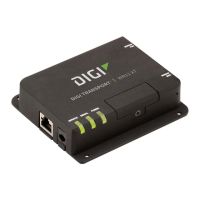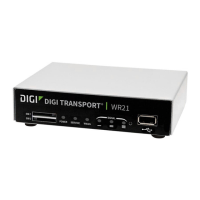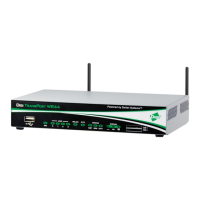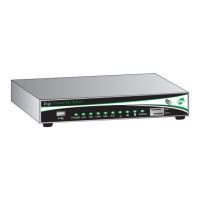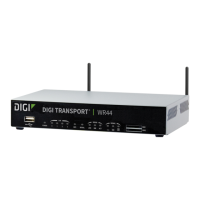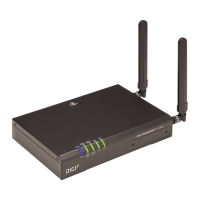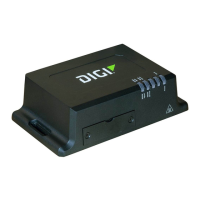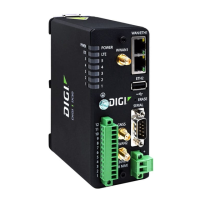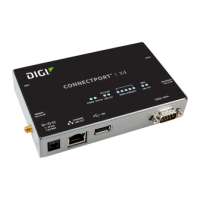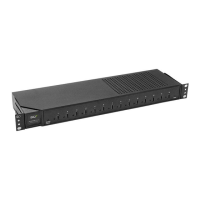Configure network interfaces Configure Ethernet interfaces
Digi TransPort WR Routers User Guide 168
View port status
To view the status of RSTP/STP on a router’s Ethernet ports, use the following commands:
stp show
Port 0, Designated, Forwarding ctrl2:0x6
Port 1, Backup, Discarding ctrl2:0x1
Port 2, Backup, Discarding ctrl2:0x1
Port 3, Disabled, Discarding ctrl2:0x1
The port roles are:
The STP port states are:
The RSTP port states are:
Role Description
Disabled There is nothing physically connected to this Ethernet port.
Root A forwarding port that has been elected for the spanning-tree topology, towards the root bridge.
Designated A forwarding port for every LAN segment, away from the root bridge.
Alternate An alternate path to the root bridge. This path is different than using the root port.
Backup A backup/redundant path to a segment where another bridge port already connects.
State Description
Disabled The port is not functioning and cannot send or receive data.
Listening The port is sending and receiving BPDUs and participates in the election process of the root
bridge. Ethernet frames are discarded.
Learning The port does not yet forward frames, but learns source addresses from frames received and adds
them to the MAC address table.
Forwarding The port receiving and sending data, normal operation. STP still monitors incoming BPDUs that
would indicate it should return to the blocking state to prevent a loop.
Locking A port that would cause a switching loop, no user data is sent or received but it may go into
forwarding mode if the other links in use were to fail and the spanning tree algorithm determines
the port may transition to the forwarding state. BPDU data is still received in blocking state.
Role Description
Learning The port does not yet forward frames but it does learn source addresses from frames received
and adds them to the MAC address table. The port processes BPDUs.
Forwarding The port receiving and sending data, normal operation. STP still monitors incoming BPDUs that
would indicate it should return to the blocking state to prevent a loop.
Discarding A port that would cause a switching loop, no user data is sent or received but it may go into
forwarding mode if the other links in use were to fail and the spanning tree algorithm determines
the port may transition to the forwarding state. BPDU data is still received in blocking state.
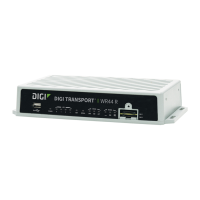
